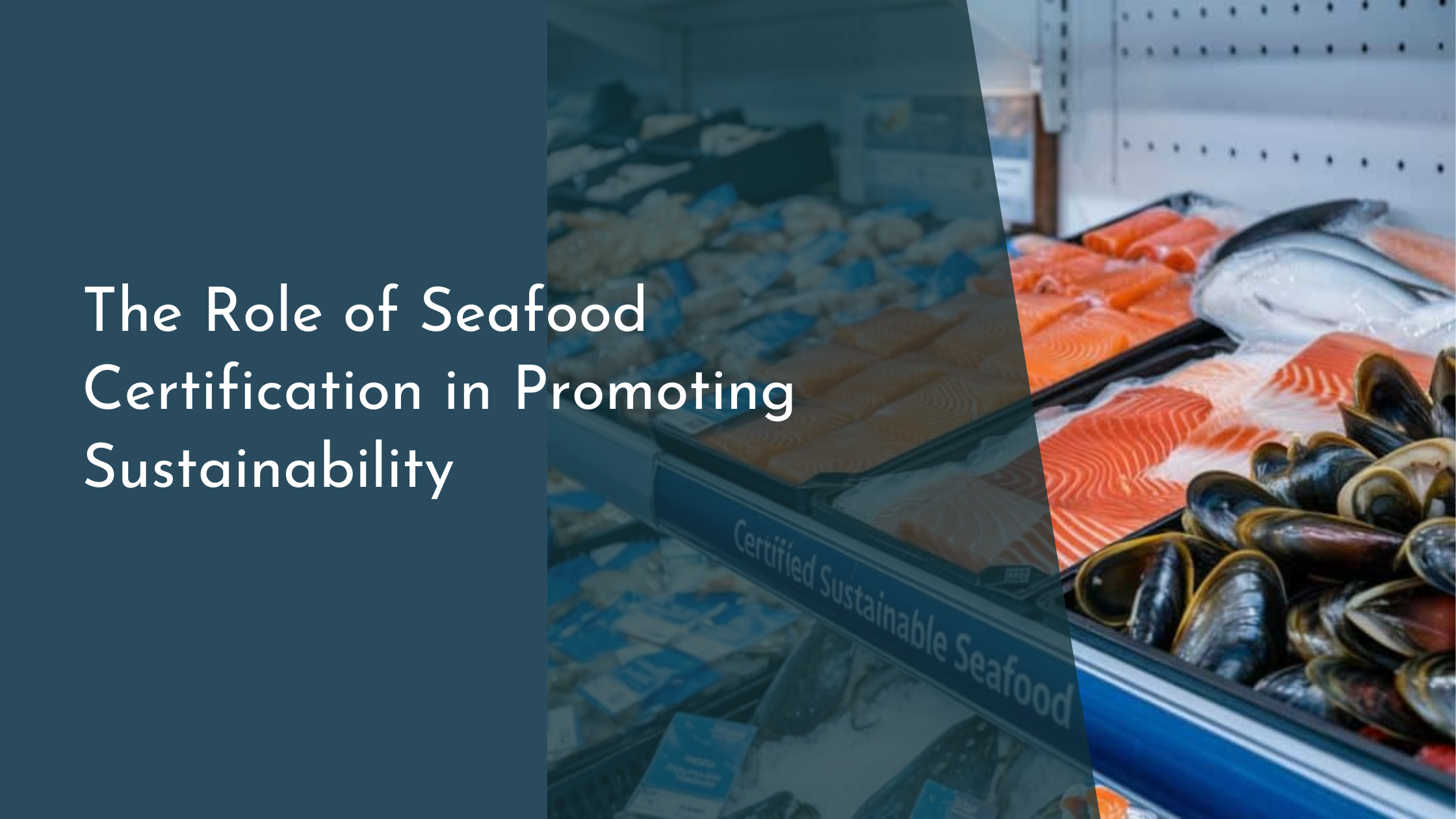The Role of Seafood Certification in Promoting Sustainability
In an era where sustainability is at the forefront of environmental discussions, the role of seafood certification has become increasingly significant. With oceans covering over 70% of the planet, the sustainable management of marine resources is crucial for maintaining biodiversity, ensuring food security, and supporting the livelihoods of millions. Seafood certification systems have emerged as essential tools in this endeavor, offering a pathway for consumers, retailers, and producers to participate in the sustainable fishing movement. This article delves into the intricacies of these certification systems, their impact on sustainability, the challenges they face, and the promising future they hold for sustainable seafood.
Understanding Seafood Certification Systems
Seafood certification systems are structured programs that assess and verify whether seafood products meet specific sustainability standards. These systems are developed by independent third-party organizations and cover a wide range of criteria, including the health of fish stocks, the environmental impact of fishing practices, and the management of fisheries. Some of the most recognized certification bodies include the Marine Stewardship Council (MSC), Aquaculture Stewardship Council (ASC), and Friend of the Sea. Each of these organizations employs rigorous scientific methods and stakeholder consultations to develop standards that aim to minimize the environmental footprint of fishing and aquaculture activities.
The certification process typically involves several steps, including the initial application by fisheries or aquaculture operations, a thorough assessment conducted by accredited certification bodies, and ongoing monitoring to ensure compliance with sustainability standards. Once certified, products can bear the certification label, signaling to consumers that the seafood has been sourced responsibly. This labeling not only provides transparency in the supply chain but also empowers consumers to make informed choices that support sustainable practices in the seafood industry.
How Certification Enhances Sustainability
Certification programs contribute significantly to sustainability by promoting responsible fishing and aquaculture practices. By setting stringent standards, these programs incentivize fisheries and aquaculture operations to adopt more sustainable methods, such as reducing bycatch, protecting critical habitats, and improving resource management. This shift towards sustainability helps maintain fish populations at healthy levels, ensuring that marine ecosystems remain resilient and productive over the long term.
Moreover, seafood certification fosters greater collaboration and accountability among stakeholders. It encourages dialogue and cooperation between fisheries, governments, non-governmental organizations, and consumers to address common challenges and develop innovative solutions. Through certification, industries can not only demonstrate their commitment to sustainability but also gain a competitive advantage in the marketplace. This collaborative approach ensures that the seafood industry continues to evolve and adapt in response to emerging sustainability challenges.
Challenges and Opportunities in Certification
Despite the positive impact of certification systems, they face several challenges. One significant hurdle is the cost and complexity associated with obtaining and maintaining certification. For small-scale fisheries and aquaculture operations, navigating the certification process can be financially and logistically daunting. Additionally, there is the risk of “greenwashing,” where products are marketed as sustainable without meeting rigorous standards, which can undermine consumer trust and the credibility of certification programs.
However, these challenges present opportunities for innovation and improvement. There is a growing emphasis on developing more inclusive and accessible certification models that accommodate the unique needs of small-scale and developing-world fisheries. Technological advancements, such as blockchain and traceability tools, are also being integrated into certification systems to enhance transparency and reduce the risk of fraudulent claims. By addressing these challenges head-on, the seafood certification industry can continue to evolve and strengthen its role in promoting sustainability.
The Bright Future of Sustainable Seafood
The future of sustainable seafood is bright, thanks in part to the continued evolution and expansion of certification systems. As consumers become more environmentally conscious, the demand for certified sustainable seafood is expected to rise. This trend is driving more fisheries and aquaculture operations to seek certification, thereby expanding the reach and impact of sustainable practices across the globe. The ongoing development of innovative technologies and methodologies also promises to enhance the effectiveness and efficiency of certification systems further.
Industry stakeholders are increasingly recognizing the importance of collaboration and shared responsibility in achieving sustainability goals. Initiatives that promote partnerships among governments, non-governmental organizations, industry leaders, and researchers are setting the stage for a more holistic and systemic approach to managing marine resources. By leveraging these collaborations and the power of certification, the seafood industry can lead the way in creating a sustainable future for our oceans and the communities that depend on them.
Seafood certification plays a pivotal role in promoting sustainability in the global seafood industry. By establishing clear standards and encouraging responsible practices, these systems help preserve marine ecosystems, support sustainable livelihoods, and empower consumers to make informed choices. While challenges remain, the opportunities for innovation and collaboration offer a promising path forward. As we continue to prioritize the health of our oceans, seafood certification will undoubtedly be a key component of our collective efforts to create a sustainable future for generations to come.

